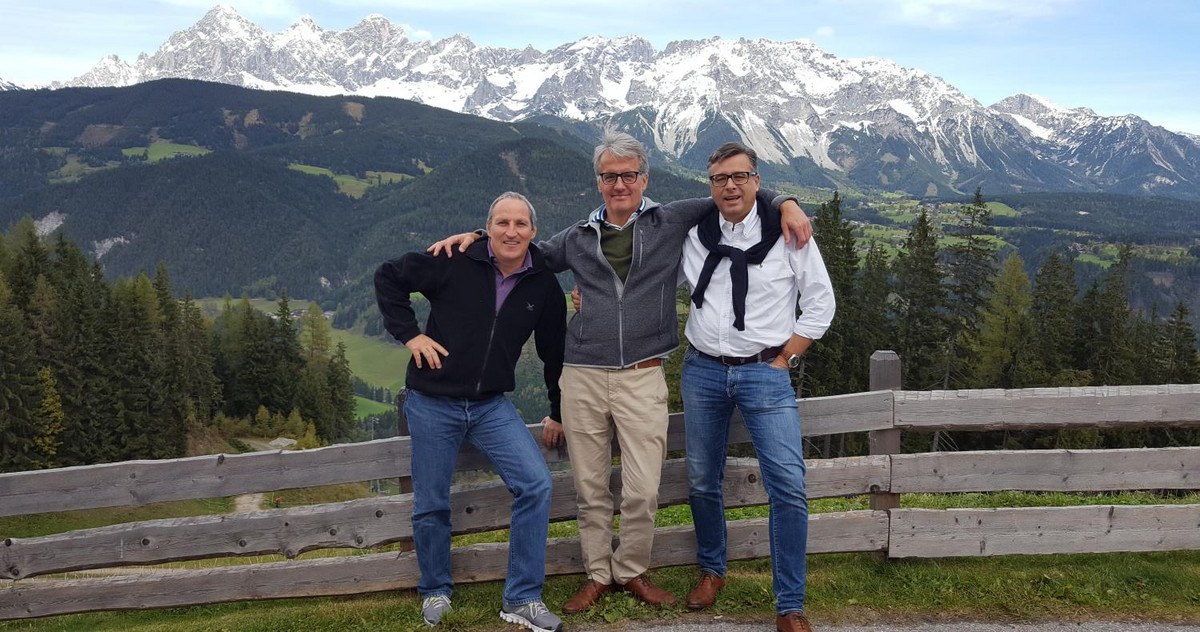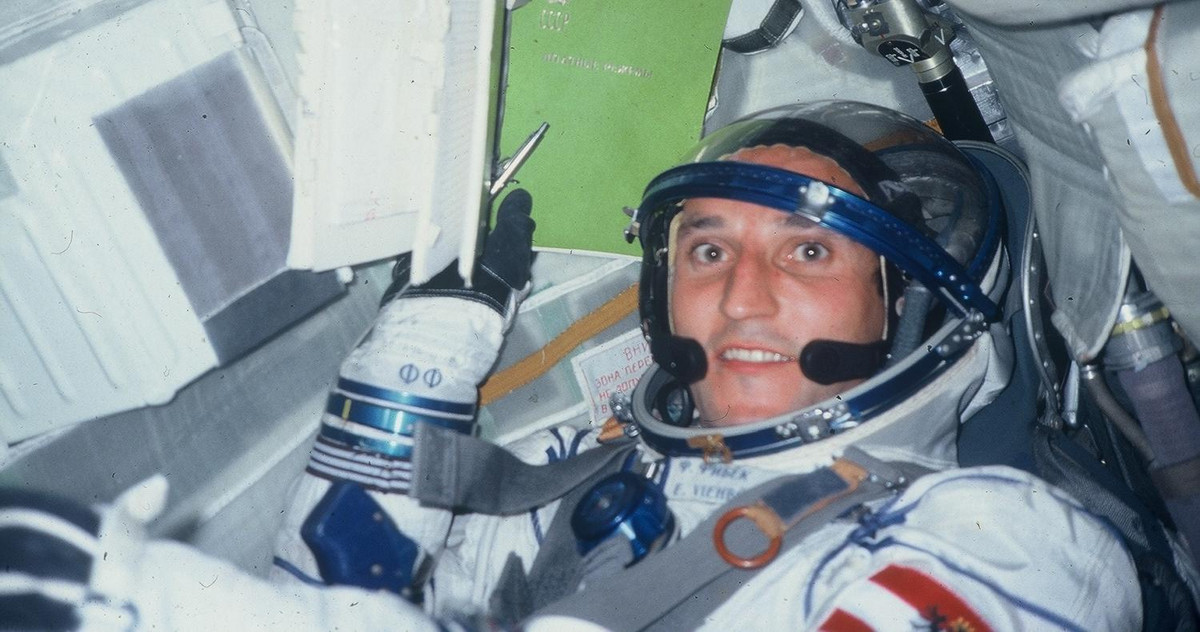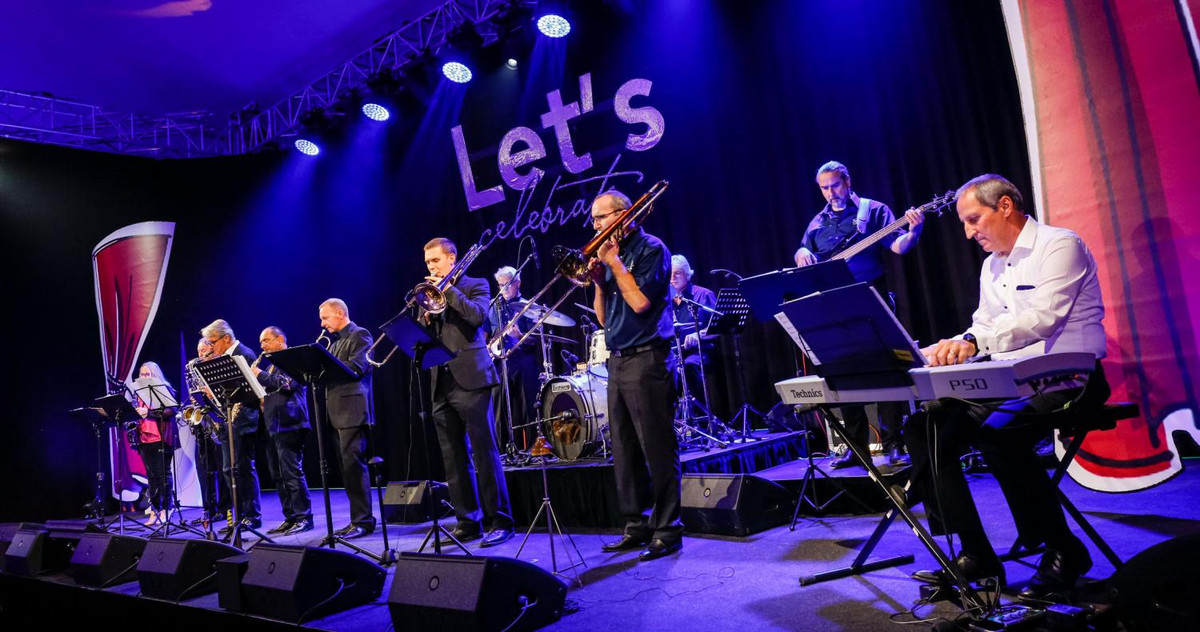Overview
Recommendations
Next Steps
Social media
Reaching for the stars, keep your feet on the ground
When Franz Viehböck embarked on a trip to the MIR space station on October 2, 1991, after many months of rigorous training, conditions were adverse. This endeavor taught him many things he finds useful today as a top management executive. We talked to Austria’s sole a(u)stronaut, inquiring about his personal recipe for success as a cosmonaut and also a manager.

In the spring of 1988, a timid job announcement attracts Franz Viehböck’s attention. It reads: “Hiring Austrian cosmonaut (m/f).” Without a second thought, the then university assistant at the Vienna University of Technology applies: after all, he is fit, interested in sciences, and he dreams of flying to space. Along with another person, he is selected for the “Austromir” space project from a pool of several thousand applicants. He completes a two-year training camp in Russia before becoming the first Austrian to set foot in the space capsule at the Baikonur Cosmodrome in Kazakhstan on October 2, 1991. The rocket travels through space at a speed of 28,000 km/h. He goes on to spend nine days at the Russian space station MIR. He conducts 15 scientific experiments, testing the effects of cosmic radiation, particle radiation, and zero gravity on his body’s functions.

Franz Viehböck returned to Earth on October 10, 1991. Today, as a top manager, he believes in reaching for the stars while keeping one’s feet firmly planted on the ground. As an a(u)stronaut, he learned many valuable lessons for his later career in top management. These are his seven most important learnings:
Franz Viehböck traveled all continents already as a student. “I wanted to get to know as many cultures as possible as this opens up new perspectives,” he says. He was equally curious about technology and innovation. “I did not hesitate long to apply to become an astronaut.” At the MIR space station, he had to share very cramped living and working quarters with other astronauts. Among them a Kazakh, a Russian, and two Ukrainians. “You have to be open-minded and overcome language barriers,” Franz Viehböck explains. Today, globalization and digitization force managers to adopt an open attitude regarding new ideas as well as other cultures and ways of thinking. “Looking down to Earth from space was an astonishing experience. All those artificial geographical borders disappear, and what is left is the whole.” Taking a look from above at the big picture, choosing a comprehensive approach, being open to differing opinions are, he says, crucial in modern management styles.

Astronauts operate within a broad field of knowledge, just like managers. “And this knowledge must, naturally, be acquired,” Franz Viehböck says. He had to learn Russian, spin in a centrifuge at 8G, and acquire methods used in scientific testing. He braved the winter in Siberia, practiced ocean landings in a space capsule and space travel in a simulator. “These preparations proved to be highly useful. I acquired confidence and was able to keep a clear head also in very demanding situations, both in space travel back then and in management today”, Franz Viehböck remembers.
When people are pushing their boundaries or attempting things they have never done before, preparation is important yet far from sufficient. In today’s fast-changing and complex VUCADD world, we can no longer rely on meticulous planning to be prepared for all eventualities. The same goes for space travel. Unforeseen problems can occur during takeoff or landing. Preparation helps, but both astronauts and managers also need courage, trust, and the ability to respond swiftly in the event of unexpected turbulences.
Effective stress management is a must during a space trip – after all, wrong actions can cost your life. It is advisable to confront one’s own stress level and stressors in order to be able to respond. “Early on in our training as astronauts, we were told to reflect on ourselves and how we act under stress,” says Franz Viehböck. Personally, he opted for increasing resilience through intensive autogenic training. When the spaceship took off, he was fairly calm – and had a heart rate of 72 bpm. While travelling to the space station, however, he suffered from a headache for several days. It is a fact: the more often we leave our comfort zone and confront stress in a controlled way, the better we get at dealing with unforeseen stress situations we encounter in the future. Today, Franz Viehböck strongly believes in breathing exercises, spending a lot of time outdoors, and a diet rich in vegetables.

The cosmonauts for the Austromir project were selected to make up a very diverse team: members not only had different nationalities but also differed with regard to specializations and expertise. Managers should also consciously put together teams. “Make sure your team is diverse – every single one of your employees should be better than you at their respective field of action,” Franz Viehböck advises. Only then can a team deliver the best possible results. At Berndorf, “IT nerds” are linked up with traditional engineers through an innovative project realized in collaboration with the subsidiary Humai specialized in augmented reality. The sole downside: “You will no longer be able to impress your team with your expertise. Instead, you will have to rely on your leadership skills,” the top manager says.
Franz Viehböck emphasizes that covering up or not admitting mistakes puts a mission at risk. Management mistakes also occur on Earth and are made by both employees and executives. “It is important to discuss mistakes in a constructive way so that everybody can learn from them,” says Franz Viehböck. If executives manage to do so in an authentic, honest way, they become true leaders whom people like to follow.

When things go smoothly, you can have a little party even in the zero-gravity surroundings of a space station. As a result, conversation and a creative exchange of ideas ensue – just like in companies. However, “if lightning flashes keep hitting the ship and the system’s alarm is going off, this is probably not the right time to talk about values and visions,” Franz Viehböck says. Such a situation requires clear decisions and a swift response. Leading by giving commands can then be the way to go – just the way a commander of a space shuttle acts when the ship meets turbulences.
For everything else you need to know to be an excellent leader, please click here.